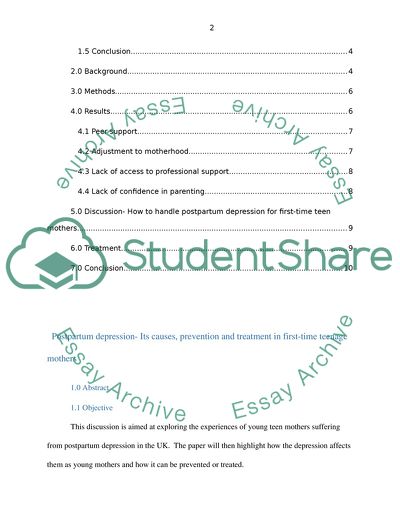Cite this document
(Postpartum Depression of First-Time Teenage Mothers Research Paper, n.d.)
Postpartum Depression of First-Time Teenage Mothers Research Paper. https://studentshare.org/sociology/1855868-postpartum-depression-in-first-time-teenage-mothers
Postpartum Depression of First-Time Teenage Mothers Research Paper. https://studentshare.org/sociology/1855868-postpartum-depression-in-first-time-teenage-mothers
(Postpartum Depression of First-Time Teenage Mothers Research Paper)
Postpartum Depression of First-Time Teenage Mothers Research Paper. https://studentshare.org/sociology/1855868-postpartum-depression-in-first-time-teenage-mothers.
Postpartum Depression of First-Time Teenage Mothers Research Paper. https://studentshare.org/sociology/1855868-postpartum-depression-in-first-time-teenage-mothers.
“Postpartum Depression of First-Time Teenage Mothers Research Paper”. https://studentshare.org/sociology/1855868-postpartum-depression-in-first-time-teenage-mothers.


